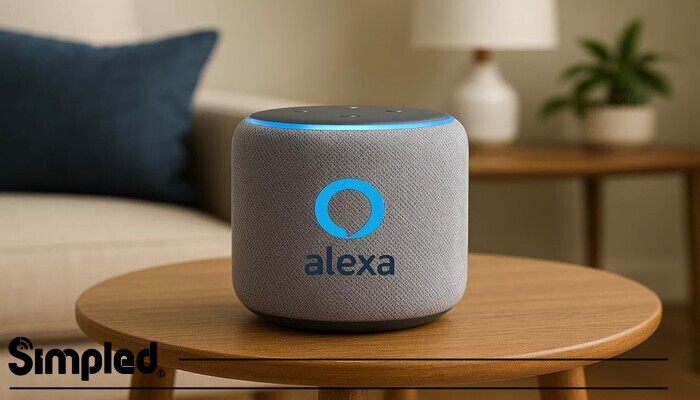Amazon Alexa has revolutionized how we interact with technology in our homes. As one of the most popular smart assistants, it provides users with voice-controlled smart home integration, media control, and personal assistance. For many, Alexa is a game-changer, making daily tasks easier and more efficient. However, like any technology, Alexa is not without its downsides.
In this article, we will dive into the Amazon Alexa disadvantages and Alexa negatives that may impact your decision to purchase or use the device. Whether you’re considering getting your first smart speaker or you’ve already adopted Alexa into your home, it’s important to be aware of potential drawbacks. This knowledge will help you make an informed choice, ensuring that Alexa fits your lifestyle, needs, and privacy preferences.
The Alexa Experience: Understanding Its Benefits
Before diving into the disadvantages, let’s first acknowledge what makes Alexa such a compelling choice for millions of users.
-
Smart Home Integration: With Alexa, you can control your lights, digital door locks, thermostats, and more. It’s compatible with thousands of smart devices, making it an excellent hub for home automation.
-
Convenience: Whether you’re asking Alexa to set a timer, play music, or give you weather updates, the convenience of voice control is a significant benefit.
-
Hands-Free Operation: Alexa allows you to control devices and access information without lifting a finger, which can be a huge advantage when your hands are full or you’re away from your phone.
-
Entertainment and Media Control: Alexa is seamlessly integrated with streaming services like Amazon Music, Spotify, and Audible, offering easy access to your favorite music, audiobooks, and podcasts.
Despite all these advantages, Alexa negatives exist. Let’s take a closer look at some of the most common Amazon Alexa disadvantages that users may experience.
Amazon Alexa Disadvantages
1. Privacy Concerns and Data Collection
One of the biggest Amazon Alexa disadvantages revolves around privacy. Alexa, like other voice assistants, is always listening for its wake word (“Alexa”). This constant listening can raise concerns about the device’s potential to record conversations unintentionally.
How Does Alexa Collect Data?
-
Voice Recordings: Alexa stores your voice recordings to improve its responses. While Amazon allows users to delete voice recordings, they remain stored for some time before deletion.
-
Data Sharing with Amazon: The data Alexa collects is used to improve the overall Amazon ecosystem, offering more personalized services, such as recommendations and tailored ads.
Some users find this level of data collection unsettling, as it’s unclear what happens to the data after it’s collected and stored. While Amazon offers privacy controls within the Alexa app (like muting the microphone or deleting recordings), these features aren’t always enough to make everyone feel comfortable.

2. Limited Accuracy and Misunderstandings
Another common Alexa negative is that the device isn’t always accurate. Alexa uses natural language processing (NLP) to understand commands, but it’s not perfect.
When Alexa Doesn’t Get It Right:
-
Misinterpretation of Commands: Alexa might not always understand your voice or accent, leading to misinterpretations of commands. This can be frustrating when you ask Alexa to play your favorite song, but it starts playing a random playlist instead.
-
False Activations: Alexa is often mistakenly triggered by background noise, such as music, TV, or even people talking. It can also misinterpret similar words, which leads to accidental activations when you didn’t intend to use it.
While improvements are continuously being made, Alexa’s ability to accurately understand commands is still a work in progress. This is a key disadvantage for users seeking a flawless experience.
3. Dependence on an Internet Connection
Alexa relies heavily on an internet connection to function. While most smart devices do, it’s especially critical for Alexa because it needs cloud-based processing to function properly.
What Happens Without a Stable Internet Connection?
-
Limited Functionality: Without an internet connection, Alexa can still perform some basic functions, like controlling locally connected smart devices that don’t require cloud communication. However, you won’t be able to access Alexa’s full range of features, including asking questions or playing music.
-
Delayed Responses: Even with a stable connection, Alexa may experience delays in responding if your internet speed is slow or unreliable.
The need for a constant, fast internet connection can be inconvenient, particularly in areas with unreliable Wi-Fi.
4. Potential Security Vulnerabilities
Like any internet-connected device, Alexa poses security risks. If your Alexa device is compromised, hackers can potentially access your personal information, listen to conversations, or control smart devices.
How Alexa Devices Can Be Hacked:
-
Weak Passwords: If your Amazon account is hacked due to weak passwords, hackers can potentially control your Alexa device and gain access to sensitive information, such as personal schedules or financial data.
-
Smart Home Vulnerabilities: Alexa is often used as the hub for controlling smart devices, such as lights, locks, and cameras. If any of your connected devices are compromised, it could lead to a breach of your home security.
Although Amazon has put measures in place, like two-factor authentication and security updates, users must remain vigilant to protect themselves from potential security threats.

5. Limited Compatibility with Some Devices
While Alexa supports a wide range of smart home devices, there are still some devices that it doesn’t fully integrate with. This can be frustrating if you have specific devices you want to control through Alexa but they aren’t supported.
Alexa’s Compatibility Limitations:
-
Brand-Specific Devices: Some brands have proprietary technology that doesn’t work well with Alexa or requires extra setup, making it less convenient for users who want a seamless experience.
-
Device-Specific Functions: While Alexa can control most devices, certain advanced features or settings may not be accessible through Alexa, limiting the scope of smart home automation.
If you rely heavily on specific brands or devices, this can be a major disadvantage.
6. Amazon Ecosystem Lock-In
Once you start using Alexa, you may find yourself more deeply embedded in Amazon’s ecosystem. While this can be convenient, it also limits your ability to use devices and services outside of Amazon’s reach.
The Ecosystem Lock-In:
-
Amazon Devices: Alexa works best with Amazon products like Fire TV, Echo speakers, and Ring doorbells. While it integrates with third-party devices, you might encounter limitations in functionality when using devices from other manufacturers.
-
Amazon Services: You may be encouraged to subscribe to services like Amazon Music, Audible, and Prime Video to take full advantage of Alexa’s features.
This lock-in may be a disadvantage if you prefer to have freedom in choosing your devices and services without being tied to one company.

Conclusion: Is Amazon Alexa Right for You?
Amazon Alexa is an impressive smart assistant that can bring a lot of convenience and control to your home. From hands-free operation to home automation, it has many strengths that make it a popular choice for smart home enthusiasts. However, Amazon Alexa disadvantages like privacy concerns, misinterpretation of commands, reliance on an internet connection, security risks, limited compatibility, and the Amazon ecosystem lock-in should not be overlooked.
Ultimately, whether Alexa negatives outweigh the benefits depends on your personal preferences and how comfortable you are with smart technology. If you prioritize privacy and security, or if you have concerns about constant internet dependence, you may want to explore other options.
If you do choose to integrate Alexa into your home, taking steps to ensure its security, like setting strong passwords and using two-factor authentication, will help you enjoy its benefits without worrying about potential downsides.








Leave A Comment